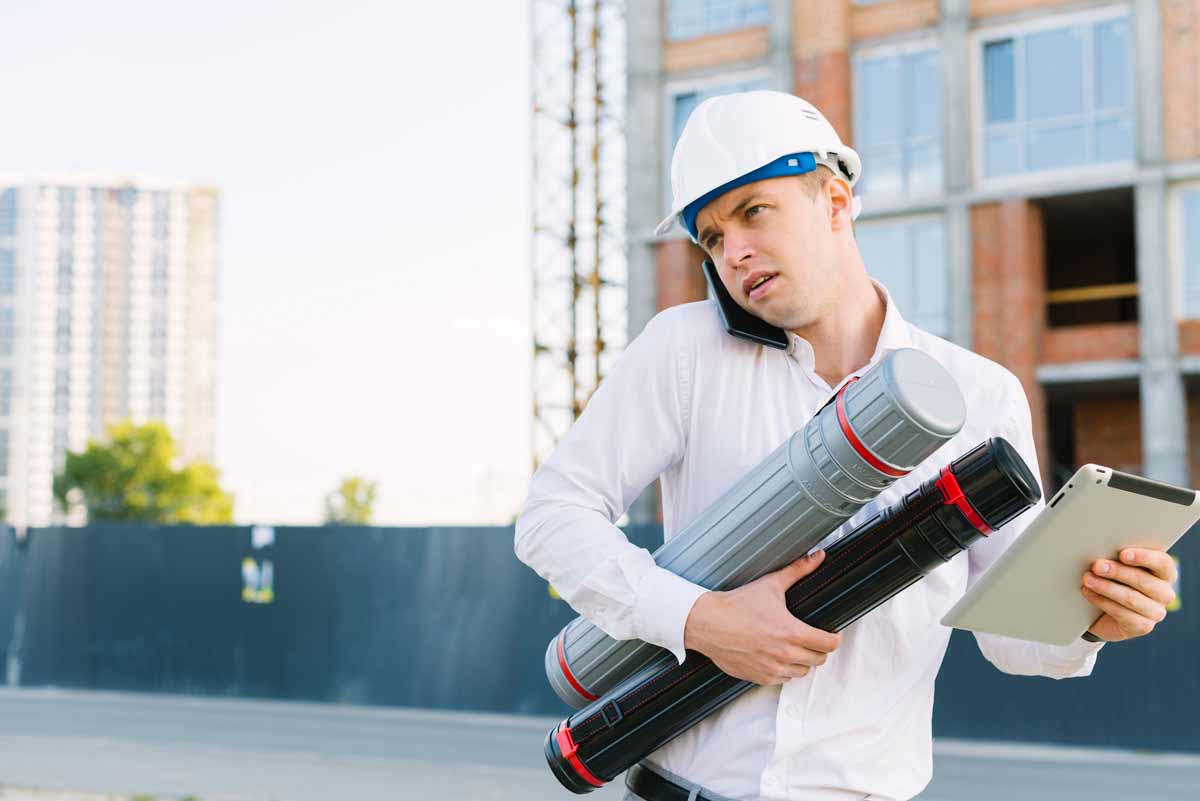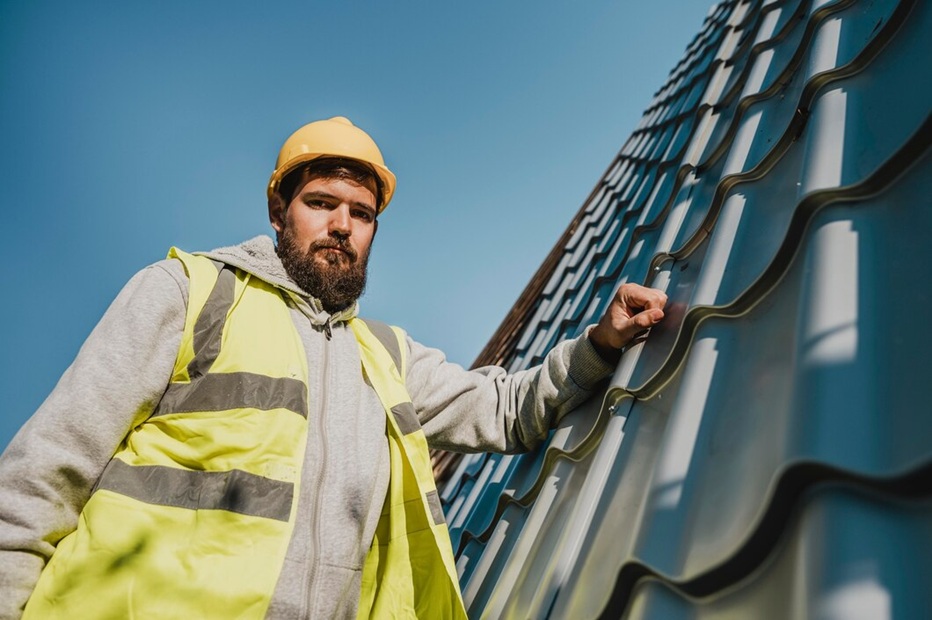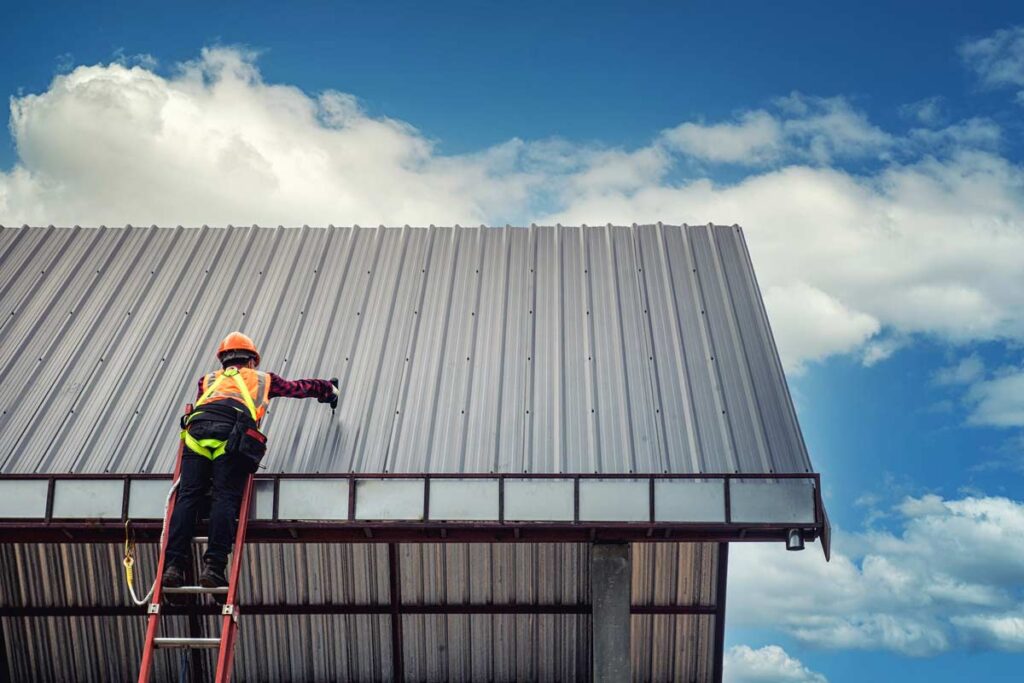Table of Contents
Key Takeaways✔ Always confirm the contractor is fully licensed and insured to protect against legal and financial risks. ✔ Choose a company with proven experience in handling commercial roofing projects similar in size and scope. ✔ Look into customer reviews and ratings to gauge the contractor’s reliability and overall satisfaction history. ✔ Check for certifications from major roofing manufacturers, as these indicate advanced training and product expertise. ✔ Make sure the contractor offers clear warranty terms for both materials and workmanship. ✔ A dependable contractor should provide a realistic project timeline and maintain open, ongoing communication. ✔ Ensure the estimate includes itemized costs and that the contract clearly outlines scope, payment terms, and timelines. |
Hiring the right contractor is one of the most important decisions when it comes to maintaining or replacing a commercial roof. A dependable and experienced professional can help prevent costly mistakes, ensure the job meets industry standards, and protect the long-term value of the property. With so many companies offering commercial roofing services, it’s essential to know what truly matters during the selection process.
Here are 7 things to look for when hiring a commercial roofing contractor.

7 Key Factors to Consider When Choosing a Commercial Roofing Contractor
1. Proper Licensing and Insurance
When choosing a commercial roofing contractor, one of the most important things to check first is if they are properly licensed and insured. This ensures the company is legally operating and has taken the right steps to protect clients and workers.
Why Licensing Matters
A license shows that the contractor has met the requirements to perform roofing work in the area. It’s a basic sign of professionalism and legal compliance.
- State and Local Licenses: These confirm the contractor is registered to operate legally in the region. Licensed contractors are more likely to follow building codes and safety regulations.
- Proof of Industry Knowledge: Licensed contractors typically must pass exams and meet experience standards, which means they understand proper techniques for projects like commercial roof repair or full installations.
The Importance of Insurance
Hiring a commercial roofing company that carries the right insurance protects property owners from being held liable for accidents or damage that may happen on-site.
- General Liability Insurance: Covers property damage caused by the roofing crew. This is crucial for large jobs involving commercial roofing services.
- Workers’ Compensation Insurance: Protects the contractor’s team in case of injuries on the job. It also keeps the property owner from being responsible for medical bills or lawsuits.
- Certificate of Insurance (COI): A reputable commercial roof contractor should be able to provide this on request. It’s a one-page document that shows active coverage and limits.
2. Commercial Roofing Experience
Hiring the right commercial roofing company starts with checking their experience. A contractor with solid experience in commercial roofing projects is more likely to deliver high-quality results.
Why Experience Matters in Commercial Roofing
Not every roofing contractor is equipped to handle the scale and specific needs of commercial buildings. Experience can mean fewer surprises, better quality work, and safer results.
- Understanding Commercial Systems: A seasoned contractor will be familiar with various commercial roofing systems like flat roofs, metal roofs, or membrane roofing, and can recommend the best solution.
- Efficient Project Management: Experienced commercial roof contractors know how to plan timelines, handle materials, and organize crews for large-scale jobs.
- Problem Solving on Site: With experience comes the ability to quickly spot and solve issues, such as drainage problems or unexpected roof damage.
Ask for Proof of Past Work
Before choosing a contractor, it’s important to check what kind of commercial roofing services they’ve done in the past. Seeing examples and hearing from past clients helps confirm they’re the right fit.
- Project Portfolio: Ask to see photos or case studies of completed projects. A strong portfolio shows the range of work they’ve done, including commercial roof repair and full installations.
- References from Clients: Request contact information for previous clients. Speaking to them can offer real insights about work quality, communication, and reliability.
- Job Types Completed: Find out if the commercial roofing company has worked on similar properties, like retail buildings, warehouses, or office spaces.
Look for Industry Knowledge
An experienced contractor will also stay up to date with the latest tools, safety standards, and materials used in commercial roofing.
- Trained and Certified Teams: Skilled teams are often trained in handling specialized tools and techniques used in commercial roofing systems.
- Knowledge of Building Codes: Contractors with real experience understand local regulations and building codes, helping avoid legal or safety issues.
- Material Expertise: Whether it’s a simple commercial roof repair or a full replacement, they can guide clients in choosing the right materials for durability and budget.
3. Reputation and Reviews
When hiring a commercial roofing contractor, reputation is one of the most important things to check. A company’s reputation often shows how reliable, skilled, and professional they really are.
Start With Trusted Online Review Platforms
Reading online reviews gives insight into the quality of work and customer service a commercial roofing company offers. It helps reveal past clients’ real experiences.
- Google Reviews: Offers public reviews with star ratings and written feedback from verified customers. Look for comments about project timelines, communication, and satisfaction with the job.
- Better Business Bureau (BBB): Provides ratings based on complaints, business practices, and resolution history. A high BBB rating usually means the company handles issues well and maintains good customer relationships.
- Local Business Directories: Sites like Yelp or Angi may offer more customer feedback, especially on smaller local companies. These can be useful for spotting trends in performance.
Ask for Client References and Testimonials
A trustworthy commercial roofing contractor should be able to provide references. These are past clients who can speak honestly about their experience. Direct feedback can offer more personal and detailed insight than public reviews.
- Contactable References: Speaking to past clients helps confirm the company’s professionalism, especially for commercial roof repair projects.
- Before-and-After Photos: Seeing actual project results can help evaluate quality and scope.
- Success Stories: If the contractor shares case studies of large or complex jobs, it shows their capability in handling different types of commercial roofing services.
4. Manufacturer Certifications
When choosing a commercial roofing contractor, it’s important to check if they’re certified by top roofing material manufacturers. These certifications are not just badges—they show that the contractor has been trained to install certain products correctly and meets the standards set by the manufacturer.
Why Manufacturer Certifications Matter
Not all commercial roof contractors are the same. Manufacturer-certified roofers often provide higher-quality commercial roofing services because they’re trained by the brands whose materials they install. That means they’re more likely to follow proper installation methods, which can help the roof last longer and avoid issues later on.
- Trusted Quality Assurance: Certification proves that the contractor knows how to install the manufacturer’s products the right way. This reduces the chances of mistakes or poor workmanship.
- Access to Extended Warranties: Many roofing product manufacturers offer extended or upgraded warranties, but only when the work is done by a certified contractor. These warranties can cover materials and labor, which adds extra protection for property owners.
- Updated Training and Standards: Certified contractors often have to stay up to date with product changes, new installation techniques, and safety procedures. This keeps their work in line with the latest industry best practices.
- Better Workmanship Standards: Certification programs usually require a high level of professionalism and a good track record. This often translates to better customer service and results.
- Fewer Problems in the Future: Proper installation is key to avoiding leaks, damage, and the need for future commercial roof repair. A certified contractor is more likely to get it right the first time.
5. Warranty and Guarantee Policies
When choosing a commercial roofing contractor, understanding the warranty and guarantee options can make a big difference. These policies protect a business from unexpected issues after the job is done.
Types of Warranties to Expect
There are usually two main types of warranties in commercial roofing: workmanship warranties and manufacturer warranties. Knowing the difference helps business owners make better decisions when hiring commercial roof contractors.
- Workmanship Warranty: This warranty covers problems caused by improper installation or labor mistakes. If there’s a leak or defect due to poor work, the contractor is responsible for fixing it within the warranty period.
- Manufacturer Warranty: This type covers defects in the roofing materials. If the material fails under normal conditions, the manufacturer will provide replacements or cover repair costs.
Key Things to Understand in a Roofing Warranty
A good contractor offering commercial roofing services should walk clients through all warranty details.
- Warranty Duration: This tells how long the warranty lasts. Some workmanship warranties last 1–5 years, while manufacturer warranties may extend 10–30 years depending on the product used.
- What’s Covered: This explains exactly what issues the warranty includes. It may cover leaks, material defects, or labor errors, but each policy is different.
- What’s Not Covered: Some warranties exclude damage caused by weather, improper maintenance, or unrelated repairs. It’s important to ask what voids the warranty.
- Transferability: If the building is sold, some warranties can be transferred to the new owner. This can be a benefit when negotiating property sales or leases.
- Claim Process: A reputable commercial roofing company should explain how to file a warranty claim. Business owners should know who to contact and how long the response time usually takes.
6. Project Timeline and Communication
Hiring a commercial roofing contractor isn’t just about materials and cost—it’s also about how the project is managed and communicated. One of the most important things to look for is how clearly a contractor lays out their timeline and how consistently they stay in touch.
Importance Of A Clear Project Timeline
A reliable commercial roofing company should provide a clear, step-by-step timeline before any work begins. This helps business owners understand when each part of the job will take place and how long it should take.
- Start and End Dates: Gives a clear idea of when the commercial roofing services will begin and when they are expected to finish.
- Work Phases: Breaks the job into phases like prep, removal, installation, and clean-up so it’s easy to follow.
- Weather Planning: Includes extra time in the schedule in case of rain or other weather issues, which are common in commercial roof repair projects.
- Business Downtime Planning: Shows how the contractor will work around business hours or limit disruption, especially important for businesses staying open during repairs.
What Good Communication Looks Like
Working with commercial roof contractors requires clear and consistent communication before, during, and after the project. Since miscommunication is the most common cause of project failure, maintaining open dialogue helps keep everyone aligned and allows any issues to be addressed quickly and effectively.
- Fast Responses: The contractor should reply to calls or emails quickly, even before the project starts.
- Clear Explanations: All steps of the commercial roofing process should be explained in simple, easy-to-understand terms.
- Regular Updates: The contractor should give progress reports or check-ins during the job to keep the business informed.
- Problem Alerts: If any unexpected issues come up, they should notify the client right away with a clear explanation and possible solutions.
Signs Of Professionalism Early On
How a commercial roofing contractor acts during the first few conversations can be a strong clue about how they’ll handle the whole job. Pay attention to how they communicate and whether they follow through on what they say.
- Shows Up On Time: Arrives on time for the first meeting or inspection, showing reliability and respect for the client’s schedule.
- Listens Carefully: Takes time to understand the business’s needs and answers questions clearly.
- Presents Documents Clearly: Shares estimates, schedules, and service details in writing with no hidden fees or vague terms.
7. Detailed Estimates and Contracts
When hiring a commercial roofing company, one of the most important things to review is the estimate and contract. These documents lay the foundation for trust, clear communication, and a well-managed project.
What a Written Estimate Should Include
A good estimate provides a clear breakdown of the work involved and the total cost, helping avoid unexpected charges. With over 85% of Americans reporting surprise fees in the past years, according to Consumer Reports, it’s essential to request a detailed estimate before starting any commercial roofing services.
- Itemized List of Materials: The estimate should include a list of roofing materials, including types of shingles or membranes, underlayment, flashing, sealants, and fasteners. This shows the quality and quantity of what’s being used.
- Labor Breakdown: This part covers the number of labor hours, the number of workers needed, and how long the project will take. It may also show the hourly or daily rate for labor.
- Timeline of the Project: The estimate should clearly outline the projected start and end dates. This helps avoid open-ended jobs that drag on longer than necessary.
- Equipment and Disposal Costs: Any rental equipment (like lifts or scaffolding) and debris removal fees should be listed to prevent surprise charges later.
What to Look for in the Contract
The contract is the legal agreement between the property owner and the commercial roof contractor. It should be easy to understand and cover all key areas of the job.
- Scope of Work: This describes exactly what the contractor is responsible for. It might include full commercial roof repair, replacement, or maintenance. Any specific tasks or exclusions should also be stated clearly.
- Payment Terms: Look for details on when payments are due, how much is due at each stage, and acceptable payment methods. A reputable commercial roofing company won’t ask for full payment upfront.
- Warranty Details: Contracts should explain both labor warranties and product warranties. This includes how long the coverage lasts and what it includes.
- Change Order Process: If the scope of work changes mid-project, the contract should describe how changes will be handled and approved in writing.
- Insurance and Liability Clauses: These parts confirm the contractor has the proper insurance to protect the property owner from damages or accidents during the job.
Frequently Asked Questions
How much to replace a commercial roof?
Commercial roof replacements typically range from $5,000 to $50,000. The cost depends on several factors including roof size, materials used, and labor requirements. It’s a major investment that plays a crucial role in protecting the building and maintaining property value. However, pricing can vary widely between roofing companies, so it’s best to consult reputable providers like Roofer of Pleasant Valley for accurate estimates and guidance.
What is the lifespan of a commercial roof?
The average lifespan of a commercial roof ranges from 20 to 40 years, depending on the material and maintenance. Metal and EPDM roofs tend to last longer, while built-up or asphalt systems may require earlier replacement. Regular inspections and timely repairs can extend the roof’s service life significantly.
What is the average cost of a commercial roof?
Built-up bituminous flat roof replacements typically cost between $11.50 and $14.50 per square foot. Sloped commercial roofs vary more, with asphalt shingles being the most affordable option, while materials like slate or wood come at a higher price. The total cost depends on the roof’s design and material selection. However, commercial roofing companies often have different pricing structures, so it’s recommended to reach out to trusted providers like Roofer of Pleasant Valley for precise information.
What is considered commercial roofing?
Commercial roofing refers to the roofing systems used on business or industrial buildings rather than residential homes. These roofs are often larger and designed to support heavier equipment like HVAC systems. They typically use materials suited for flat or low-slope applications. Examples include single-ply membranes, metal panels, and built-up roofing systems.
What is the most common type of commercial roof?
The most common type of commercial roof is the single-ply membrane system, such as TPO or EPDM. These materials are durable, energy-efficient, and ideal for flat or low-slope roofs. They’re widely used due to their cost-effectiveness and ease of installation. Other common types include metal roofing and built-up systems.

Get Trusted Roofing Help from a Local Expert!
Make commercial roof planning easier with guidance from a dependable provider in Pleasant Valley, NY. Roofer of Pleasant Valley offers clear, detailed estimates and solid contracts that eliminate surprises. With deep knowledge of commercial roofing and a strong track record throughout Pleasant Valley, NY, our team ensures quality results on every job.
Contact Roofer of Pleasant Valley today for expert commercial roofing services in Pleasant Valley, NY. Get a free consultation and estimate now!

